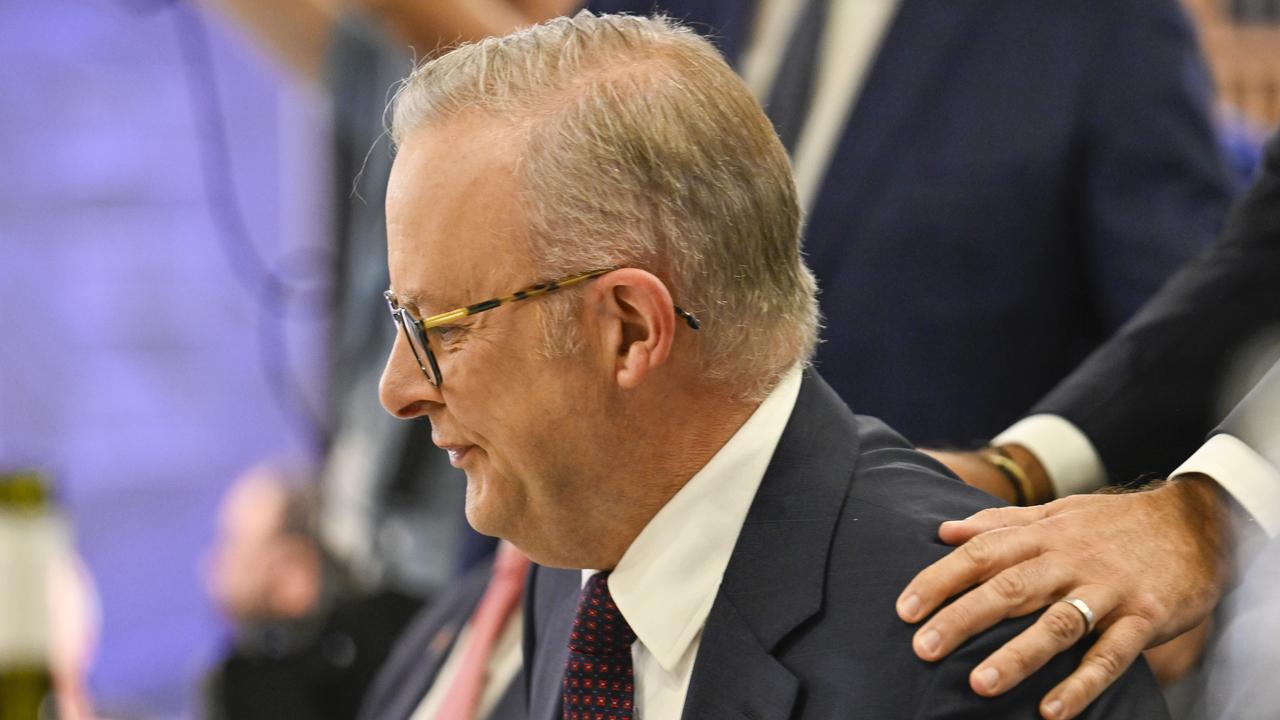Two words that could see Peter Dutton do a Donald Trump
Donald Trump’s victory appears to have inspired Peter Dutton, who may be eyeing off divisive US tactics to beat Anthony Albanese.
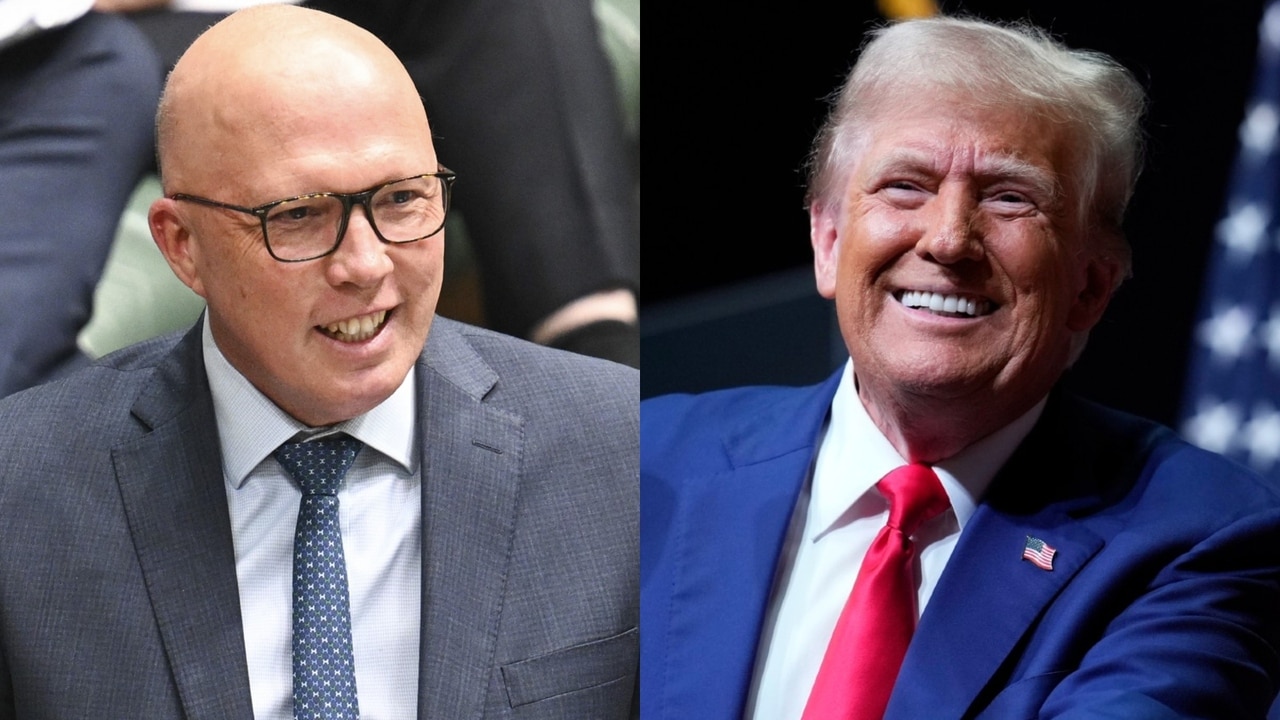
Federal Election
Don't miss out on the headlines from Federal Election. Followed categories will be added to My News.
It was, some say, the most successful campaign advert in the entire US election.
Aired in heavy rotation during football matches in swing states, the ads highlighted Kamala Harris’ 2019 comment, which she later walked back, that prisoners should have access to free sex change surgery.
“Kamala is for they/them. Donald Trump is for you,” was the succinct tagline. The two words “they/them” were brutally effective.
An expert in political rhetoric has told news.com.au Mr Trump campaign’s language was successful in “activating negative emotions” and overall “grievance”, helping push voters into the Republican Party camp.

While the US and Australia have very different democratic systems, Liberal leader Peter Dutton appears to be increasingly taking a leaf out of Mr Trump’s book to see if it will give him an edge in the 2025 election.
Similar to the US in the run up to election day, the polls in Australia are neck-and-neck.
Mr Dutton’s lean into nuclear power against renewables, his focus on immigration and a recent announcement he would not stand next to the Indigenous flag as prime minister have a headline grabbing, opposition enraging, Trumpian echo about them.
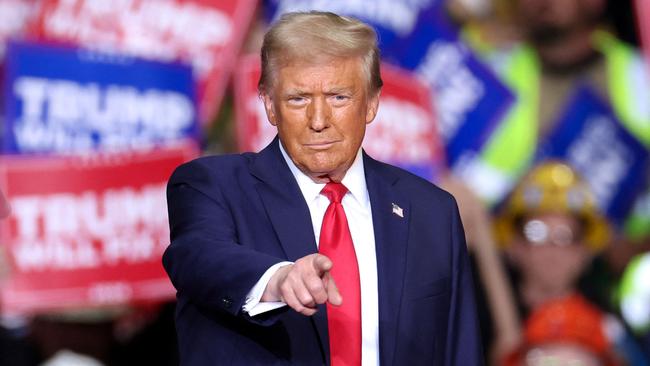
Trump’s rhetoric a factor in win
Mr Trump’s success in 2024 was not all down to his rhetoric – his name calling of Ms Harris and Joe Biden or insistence immigrants were eating the pets of Springfield, Ohio, for instance.
That would too easily let the Democrats off the hook.
In many ways, the Democrats sowed the seeds of their own ballot box loss.
Mr Biden’s – what shall we call them – “senior moments”, his refusal to keep his promise to be a “transitional president” and then his bungled baton pass to Ms Harris when it was clear he couldn’t run again, as well as her campaign flubs, were huge factors in swing voters’ rejection of the Democrats.
Then there was inflation, which was in fairness, a global problem. And the obvious issues at the Mexican border, which was in fairness, a problem all of the Democrats’ own making.
But Mr Trump’s rhetoric was also a factor, professor of political communication at Kansas University Robert Rowland told news.com.au.
“The insults and extreme language offended many, including some who ended up supporting him,” he said.
“At the same time, he was very successful in activating emotions about undocumented immigrants, transgender Americans, and other groups.
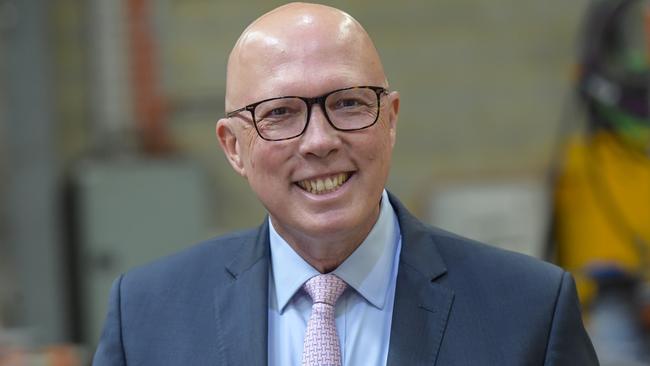
Prof Rowland added that Mr Trump “drew on another negative emotion, grievance, in describing his opponents as out of touch elitists who didn’t care about ordinary Americans”.
“The price shock and other effects of Covid created a situation in which these two messages resonated strongly for some.”
Prof Rowland said Mr Biden and Mr Harris looked “out of touch to many people, when they talked up the economy, which was “not what ordinary people were feeling”.
“Finally, Trump resolved the negative emotions by presenting himself as the strongman saviour of ordinary people,” he said.
“Trump did not so much advocate for policies as claim that whatever he did would work almost magically.
“This approach worked because of the high levels of public frustration.”
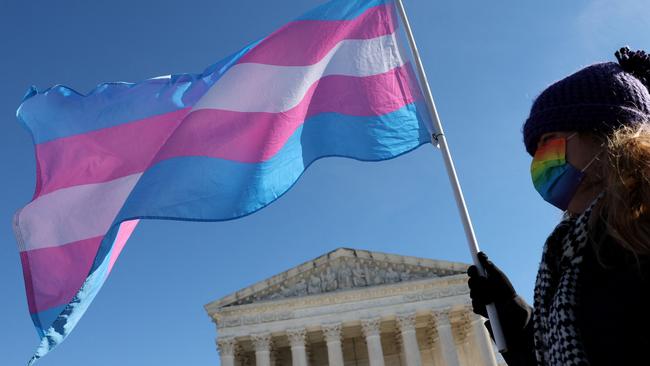
What worked for Trump, could work for Dutton
The US political system, with its Electoral College and gerrymandered seats, is unique in global democracies. Relatively few Americans, in reality, decide who becomes president and victory often comes down to the party that persuades more of its base to come out and vote. They can often lead to success in incendiary positions.
“Things are milder in Australia, so far,” says Mark Kenny, a professor at the Australian National University’s Australian Studies Institute.
The Australian Electoral Commission ensures gerrymandering doesn’t occur and the legal requirement to vote in Australia means persuading people to turn up is far less of an issue. As such, elections can often be won by appealing to the centre.
Certainly in the 2022 election, the Liberals were pole-axed by voters in blue ribbon, wealthy, inner city seats defecting to the more moderate “teal” independents.
Yet Mr Dutton appears to see an election-winning strategy not so much in winning back these voters, but in winning over voters elsewhere who may have instinctively leaned Labor in elections past.
In 2022, he boldly said the Liberals were “not the party of big business,” which he claimed was in bed with Labor, but “the friend of the worker”.
Which sounds absurd given, throughout its entire history, being not the part of big business has been Labor’s entire shtick.
But why not give it a shot? After all, it worked for Mr Trump.
His appeal to working class voters in swing states was so strong that some major US unions – huge organisations that were always allied with the Democrats – refused to endorse Ms Harris. That was because they were aware a significant number of their members were more excited by the Republicans than the Democrats.
“Like Trump, whose support base is essentially white working class, Dutton seems to be forgoing the inner cities to chase suburban and regional malcontents,” wrote Prof Kenny on academic website The Conversation.
“This includes blue-collar voters disillusioned with institutional politics and alienated by what Dutton perceives as Labor’s elite cosmopolitanism and capture by ‘woke’ politics.”
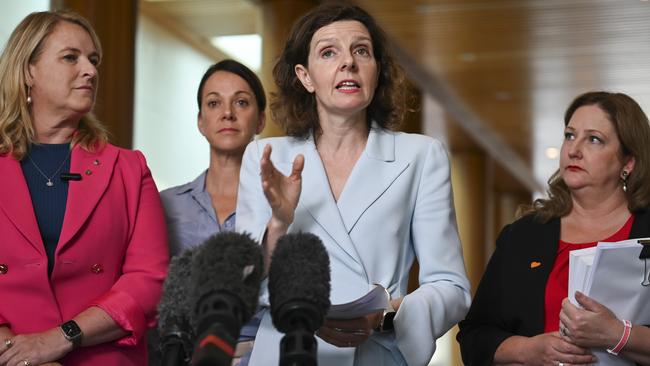
Woke
There’s that word: “woke”. The Democrats in the US knew it was toxic and steered as far away from it as possible during the election campaign.
Ms Harris made little mention of her gender or race. That her election would make history was almost a secret. Despite being the party that had championed civil rights and fought discrimination in its recent history, the Democrat campaign seemed to pretend that transgender people didn’t exist.
But the Republicans whipped it up anyway, persuading voters their tax dollars were funding sex changes and unqualified people were getting promotions simply because they were in a minority. Ms Harris herself, a lawyer and the actual Vice President was pilloried as a “DEI hire”.
Mr Dutton hasn’t doubled down on transgender issues in the way Mr Trump has. The party may still be stung by the disastrous campaign in 2022 by Liberal candidate Katherine Deves who in the past had made anti-trans comments. The seat went from Tony Abbot to independent Allegra Spender.
Nonetheless, gender issues a la Trump have begun to emerge in Mr Dutton’s talking points.
“I think when I see a government that is more interested in pronouns than they are people, it starts to become a real problem,” he told radio station 2GB in November.
Prof Kenny said Mr Dutton had been buoyed by the defeat of The Voice referendum and what the opposition leader has called “woke” decisions by companies such as Woolworths to ditch Australia Day merch.
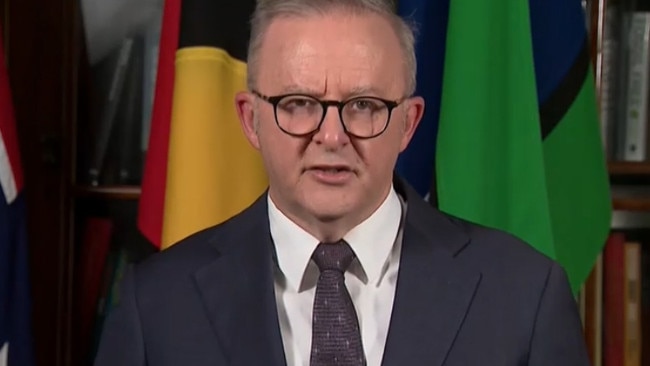
Mr Dutton is eyeing the votes of multicultural voters in Australia’s major cities. People with more recent immigrant backgrounds who have voted Labor but also are economically and morally conservative.
That mirrors Mr Trump’s appeal to Americans of diverse backgrounds which has only grown despite his comments about illegal immigrants. Indeed, many Americans with an immigrant background who came to the country legally share his disdain for those that simply nipped across the Rio Grande.
Major US cities are usually reliably Democrat, and yet Miami went to Mr Trump, fuelled by the votes of the Cuban diaspora.
The Liberals have spoken of steep immigration cuts with “rhetoric implicating migrants for causing high housing costs, traffic congestion, long GP waiting times, rising crime rates and social disharmony,” Prof Kenny said.
“Taken together, Dutton’s bullish oppositionist blends the uniform aggression of Tony Abbott with elements of defiant Trumpism.
“In an attention-fractured electorate, competent procedural administration struggles to outshine the headline-grabbing clarity conveyed by strong language and simple solutions”.
Undoubtedly the polls have tightened in Australia. But Mr Dutton isn’t there yet.
He still lags Anthony Albanese as preferred prime minister. While Australians, in general, seem lukewarm on Mr Trump.
However, if an incoming Trump administration racks up some wins in its first few months, Australians may look more kindly on a homegrown echo of the US President.
Don’t be surprised if during the election you see an advert saying Albanese is for “they/them”.
Originally published as Two words that could see Peter Dutton do a Donald Trump




